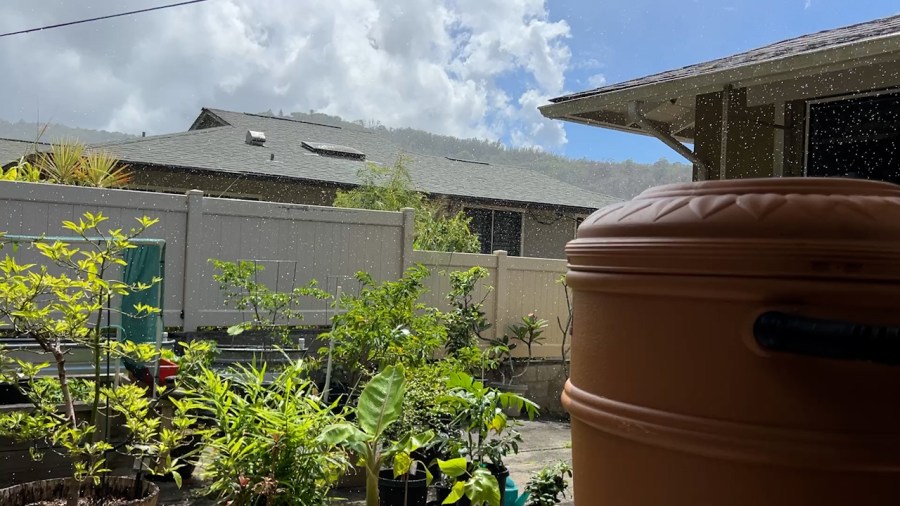HONOLULU (KHON2) — While a big orange barrel in a backyard may not seem like much at first, it can actually be a great tool to save tons of money on water bills, while also helping the ocean.
Malama Maunalua and other partners have begun free-of-charge installations of 50-gallon rainwater barrels, as part of their Rainwater Capture Incentive program.
The goal is to catch rainwater in the barrel before it hits the street and becomes infected with pollutants.
“Pollutants can be brake fluids, tire bits that are on the street. All that water just goes into the ocean without being treated, unlike water from your home, which goes to a sewage treatment facility that gets treated. This does not,” said Pam Weiant, Malama Maunalua Director of Science and Planning. “So being able to capture water on land is really important because it’s reducing that runoff.”
The rain barrel collects the rain from the rain gutter. Not only does this prevent it from hitting the ground and collecting pollutants and sediments, but it also gives the owners of the barrel the chance to reuse the rainwater for other needs, such as gardening.
“During Covid when things were all locked down, we were thinking about growing our own food,” said Curtis Miyashiro, new owner of a rainwater barrel, on his personal garden of fruits and vegetables. “So we’re totally upgrading, we’ll get more water because, as you know, it’s been dry. As long as this thing is full, we just take our water from here and water our plants.”
Over two thousand households have applied for the free installation since August. Unfortunately, only about 300 will be selected, with the main demographic being Kupuna.
However, the hope is that the project could serve as an inspiration for other companies to follow suit and make similar barrels or rain-catching devices, helping contribute to the cause.
“One of the nice things about this program is that we do have a lot of lessons learned,” said Weiant. “So we’re sharing those with different community organizations that are interested in replicating a project such as ours in their community, and now they know how they can do it, and how they can be effective.”
